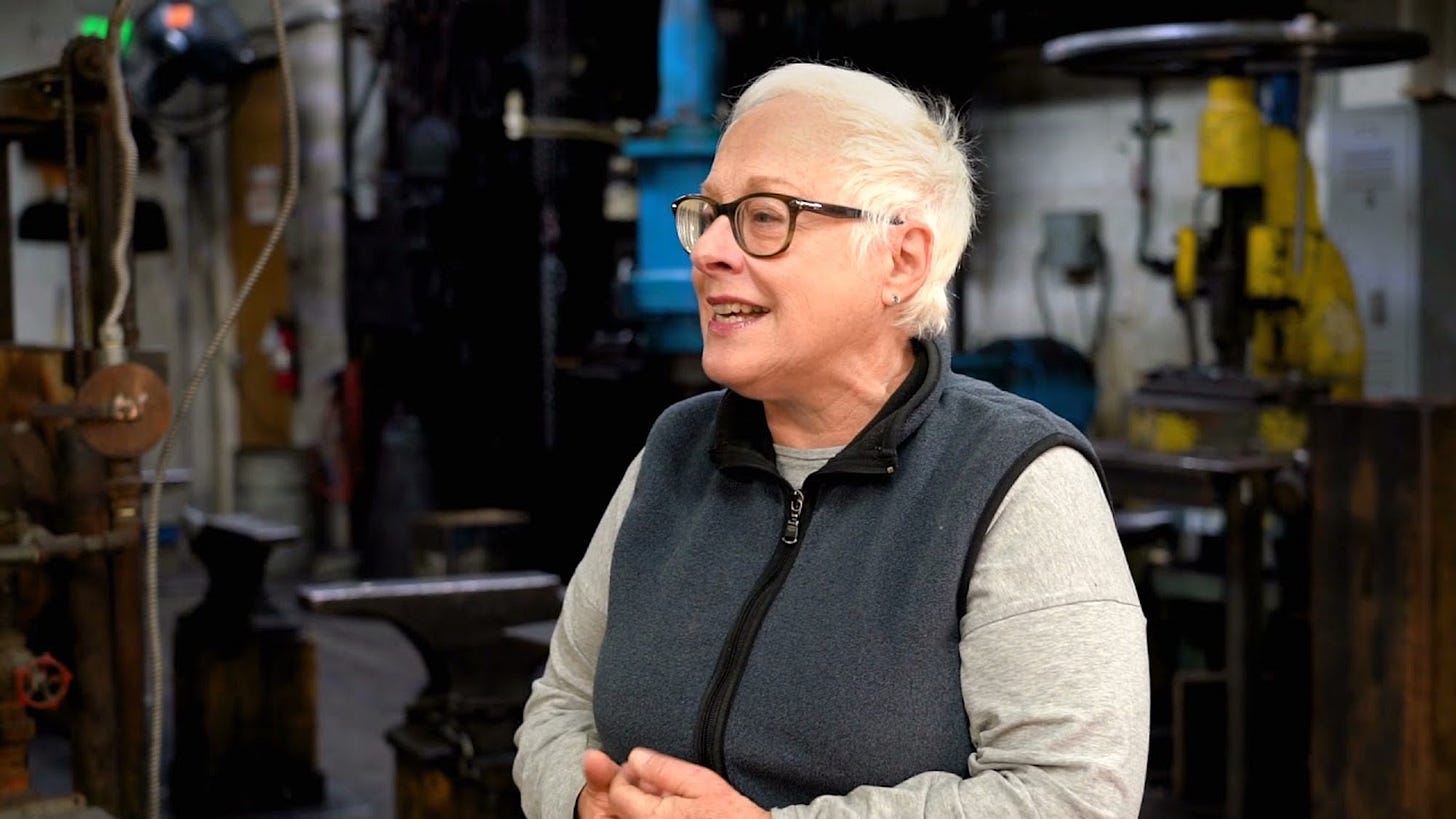What can be, unburdened by what has been
An alternate argument for inclusion that's not about data
The title phrase of this post has been in the air in recent weeks because it’s one of Vice President Harris’s favorite phrases. It also reminded me of the newsletter I wrote a few weeks ago about how we might have to “let go” of our own experience of education and work if we really want to see a better future of education and work.
And then I started thinking about how that phrase offers a clue about how much more work we need to do to reap the true benefits of inclusivity and adequate representation.
If you seek it, you can find reams of data that support that when a company, a C-Suite, a board of directors, a founding team, or an investment partnership is diverse, it improves the bottom line. Our former BlogHer co-founder, Lisa Stone, published a white paper a few years ago that synthesized that data from numerous highly credible sources.
And yet, the numbers have not only not radically improved, but in some cases, we are going backward. When I do a basic self-introduction, I often say that when we raised our first round of funding for BlogHer in 2007, less than 2% of venture dollars went to companies with solely female founders, and that the number is still 2%, 17 years later.
What are we to make of this?
I would argue that one thing we can make of this is that business decisions, including investment decisions, are not the data-driven bastions of rationality we are led to believe. They can be driven by “gut,” by “a feeling,” by pattern matching and, dare I say it, by emotion.
The other concern I have about the purely data-oriented argument for inclusivity is that it affords those of us who are breaking new ground little room for failure. Right now, the number of people from underrepresented groups making it to the top rung of any ladder is still so small that it’s a safe bet that those who have persevered and pushed and performed to become pioneers are in the topmost echelon of not just skill and smarts, but strength of character (and probably capacity for suffering) too.
I often “joke” that we’ll know we’ve reached parity when mediocre women or men of color or LGBTQ community members or disabled people regularly make it to the very top.
Did you read last week’s newsletter about redefining what “gainful employment” means and what we sacrifice for “self-sovereignty”? It struck a chord, garnering the most views of anything Optionality has published thus far!
When I take the joke most seriously, I wonder if the inevitable outcome of parity is that the shiny, positive data gap will close. Will tomorrow’s hopefully-ubiquitous diverse teams begin to look no different from today’s non-diverse teams, when it comes to measuring by today’s expectations and metrics of success? (And my second, terrible thought is whether suddenly that data will become the reason some folks reject the value of representation in ways they never act on the value illustrated by data today? Answer: Probably.)
But there’s something more hopeful I’ve been mulling over, which that dream of being “unburdened by what has been” instigates.
It’s this: We do not even know what we are missing out on because today’s representation pioneers and “firsts” are still operating in a world and following a primer for success defined by an essentially unfriendly environment.
How much of our mental bandwidth is allocated to moving in a world where we are an “only” or one of the onlies? How much do we shape our plans and our dreams to fit into a structure built by the homogeny we’re hoping to break? How much do we judge our outcomes and adapt our plans because we are, in fact, “burdened” by what has been, seeing it as the only path to breaking in?
Are there people who have already, and against all odds, unburdened themselves? No doubt. Can we even imagine what it will look like when the odds are in our favor? I’m inspired to try to imagine.
The argument for inclusion is not just about who gets to innovate and who gets to be successful. The argument for it is also about expanding the very defintion of innovation, of success.
Who do you think of as someone who charted a path that was truly unburdened? Creating something new. Something we couldn’t even compare to anything else?
I’ll start with one example that popped into my head right away: I think Oprah crafted a career we didn’t even know existed. As in, created her own category where people say I want to be the Oprah of [fill in the blank.]
Who else?






Elisa, this was a profound essay. Things don't get sorted; you end with an open question that I myself sit with, unsatisfied. It seems the earlier part of my career was in attempting to be one of the onlies, and now it's more about changing that fact. I imagine if you asked anyone with 50-year careers what they are most proud of, it's what they actually got to accomplish, not how hard they had to fight to have that impact. And yet so much of the story is just that. We don't really know what our impact could look like without the friction of fighting the norms.
Love this. Each generation has barely been able to predict the changes to come. Our time has exponentially changed due to technology - I took a typewriter to college! Keep the important discussion going. And don't forget the arts - artists show us ourselves in a mirror. We need to be sure to take a long look.